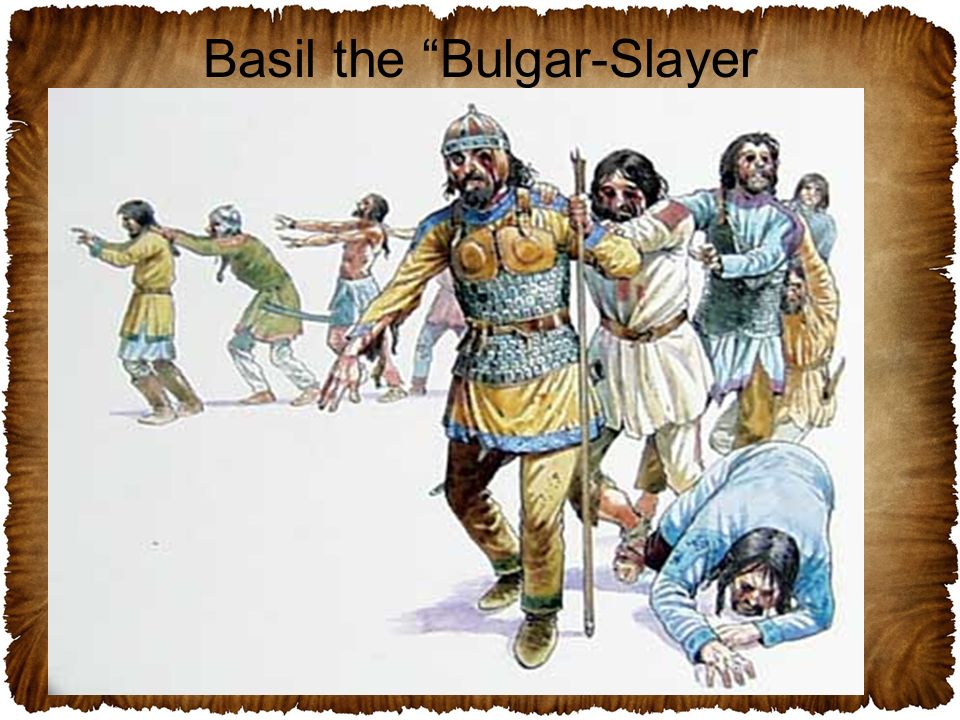
Category: Some Red Hot Gospel there!

That Sir is some serious RED HOT GOSPEL!!!

The Emperor Basil approves of this statement!!
Basil II the Bulgar Slayer and the Blinding of 15,000 Captured Soldiers 
Two of the best dogs I ever had were Princess & Smedley. All the cats for block around diappeared. Yes I really do hate Cats.
Grumpy
Point taken



In the beginning there were those newly transferred in from the unwashed masses who for some reason — real or perceived — glimpsed the truth they might need to be responsible for their own well being. For some, this lesson was purchased at great price. They are the few lucky ones, lucky to have survived, but unlucky enough to have been roles players in a real life act of robbery, rape and even murder.
A student, a victim of an attempted kidnapping comes to mind, he recalled, “I shot him with my two-shot derringer and he just looked at me.” He now carries a 1911 with no prompting from me.
From another student: “He broke into my house and raped me in front of my children and it will never happen again… ever.” This female, a true warrior now, shoots a large-frame magnum revolver. And she shoots it very well.
Student three advised, “I came to school because two guys kidnapped my wife and murdered her.” Continuing, he said, “I need to be able to protect myself and my two kids now that I have to raise them by myself.”
For the novice all of this mayhem can seem somewhat overpowering. What gun should I have, what kind of ammunition should I carry? It can be truly mind-boggling.
Looking At Your Life
Review the “who, what, where and when” so to speak of your life. Break your daily life down into where you work, play and move about. By doing so you may be able to develop a plan for your training agenda. If your life revolves around kids, then dismount drills from vehicles — making sure the munchkins do not sling the vehicle doors open into oncoming traffic — is a good thought.
Too complicated you say? I just talked to a woman who carried one child inside and one outside her person while living in Rhodesia. Her driving accessories were an FN-FAL rifle on the front seat of the car and a glove box full of hand grenades. She managed to raise two good kids and is even now a grandmother. And rather an elegant one I might add.
Who you are and what you do will help you to decide how you should train.
Training
You can get formal training and it can be beneficial. Just make sure what you are getting is what you think you need. If you aren’t sure, ask questions from those you’re about to take training from. Just because somebody was in the Army or a cop for 20 years doesn’t necessarily mean you want to drop your personal protection anchor on his or her theoretical expertise.
I just had a guy sit in my house and tell me marksmanship wasn’t as important as tactics. Could be, but if you can’t hit anything when you shoot you won’t need tactical skills. If you buzz a 9mm through the head of your kid being held hostage at the end of your hallway it will probably ruin your day and Junior’s too.
Guns And Gear
If you don’t own a handgun, don’t know anything about them and are truly interested in personal defense, a solid, simple choice is a Glock. I prefer the mid-size Model 19 or 23 in 9mm or .40 caliber respectively. I would avoid vent holes in the barrel. All the latest models come with the built-in light rail so if you want to add a light to your pistol and training, the rail makes it easy.
Buy a good flashlight and consider whether or not a gun-mounted light serves any purpose for you. Buy only high quality lights and consider rechargeable types that may be kept readily available inside the home or vehicle. Streamlight, Inc. is a brand I have used successfully for both hand held and gun-mounted systems.
Blue Light Special
I had two different guns blow up on our ranges in March of 2004 because of people using reloaded and cheap, foreign made ammo. Economy is nice, but some things should not be scrimped on. Should I go on?
Buy good ammunition, Black Hills, Corbon, Federal, Remington or Winchester as examples. You can buy ball for practice and something exotic if you think you need it for personal defense. Buy, test, carry, shoot and use only good ammunition! And as always, while practicing, wear good eye and ear protection.
The Bottom Line
For those interested, a good handgun runs about $570 with night sights. The flashlights (hand-held and gun-mounted) run from $100 to $250 based on features such as recharge capability. A case of 1,000 rounds of 9mm ball is still affordable. So for around a minimal investment you can get good equipment and good ammunition to start your skills development.
Will you be one of the lucky ones? I don’t know, but I believe the harder you train the luckier you will get — and I would rather be good than lucky.


